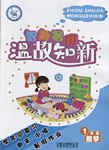题目内容
2. there was an embarrassing silence but she was able to laugh it off. (remark)
听了她的话后,大家窘得哑然无声,她却能够一笑置之。
2. After her remarks / On hearing remarks

 智趣暑假温故知新系列答案
智趣暑假温故知新系列答案 英语小英雄天天默写系列答案
英语小英雄天天默写系列答案 暑假作业安徽少年儿童出版社系列答案
暑假作业安徽少年儿童出版社系列答案某英文报开辟了"编读互动"栏目。请根据下表提供的材料,给此报写一封英文信。
2008年2月底,教育部宣布从当年3月至第二年7月,在全国200所中小学开展京剧进课堂试点活动,试点后将逐步在全国推广。此消息一发布立即弓I起人们的广泛讨论。请你作为武汉市的一名学生代表,参与此项讨论。
赞同者 | 1. 京剧是国粹; 2. 有利于弘扬民族文化; |
反对者 | 1. 地方戏剧丰富多彩; 2. 京剧独尊,有失公平;• |
根据你的理解,用英语给编辑写一封信,表达你的意见和建议。注意:
1. 开头已经写好。
2. 词数:120词左右(已给出的开头部分不计词数) 。
3. 参考词汇:a pilot program试点计划;Peking Opera京剧;privilege特惠待遇,特权; controversy争论,争议。
Dear Editor,At the end of February,2008,the Ministry of Education announced a pilot program,start?ing in March this year and ending in July next year,to add Peking Opera to music classes in200 primary and secondary schools,and then spread it throughout the country,which immediately aroused great controversy.
生词提示
a pilot program试点计戈ij; Peking Opera京剧;appreciate欣赏;controversy争论,争议; promotion提升;privilege特惠待遇,特权;overburden负担过重